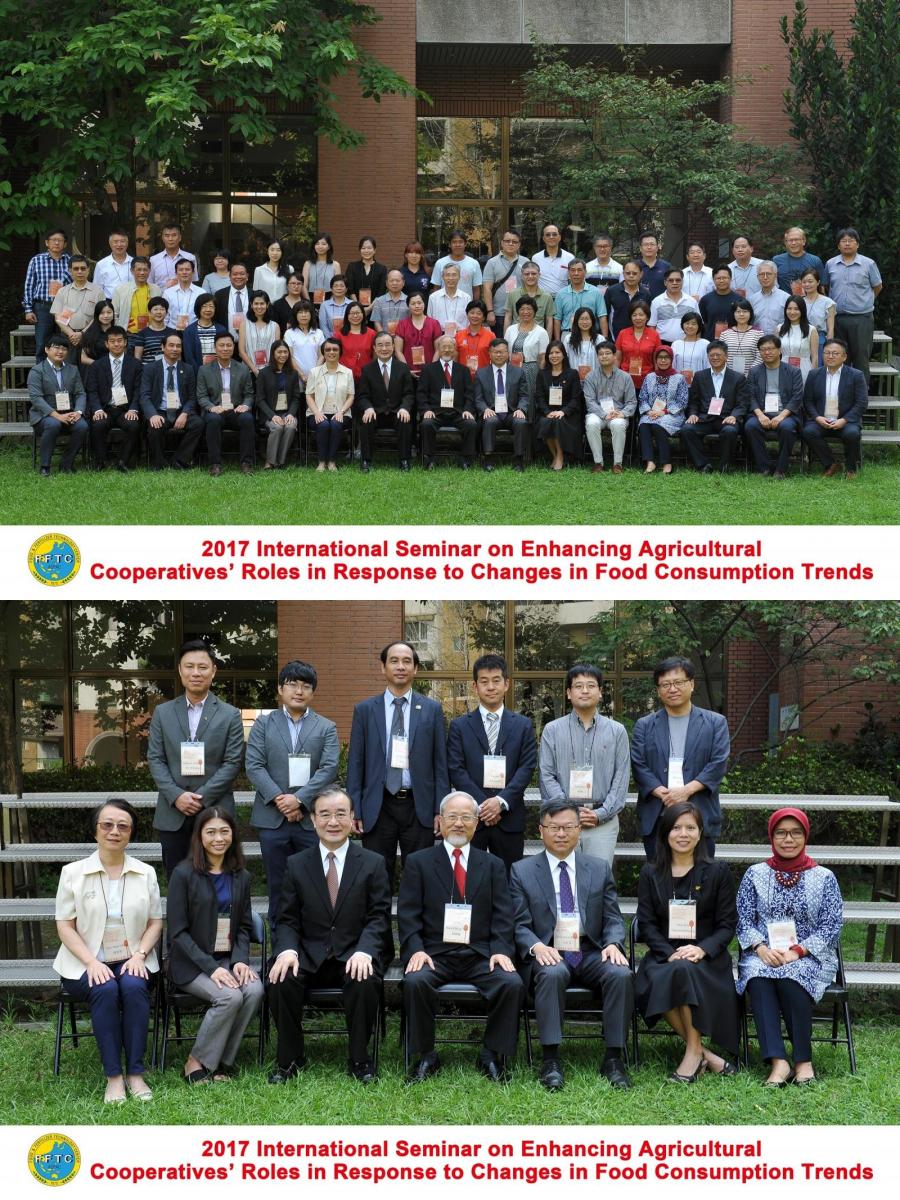News
The “2017 International Seminar on Enhancing Agricultural Cooperatives’ Roles in Response to Changes in Food Consumption Trends” Brings Experts and Scholars Together from Various Asian-Pacific Countries to Share Ideas on Opportunities for the Development of Agricultural Cooperatives
In order to boost international cooperation and experiences sharing with agricultural cooperatives in Asia-Pacific region, the Council of Agriculture (COA)sponsored the Food and Fertilizer Technology Center, with the National Training Institute for Farmers Organizations, to today (the 19th) hold the “2017 International Seminar on Enhancing Agricultural Cooperatives’ Roles in Response to Changes in Food Consumption Trends” in the international conference hall of the Mellow Fields Hotel. Ten speakers from industry, government, and academia were invited from eight Asia-Pacific countries (Japan, Korea, Malaysia, the Philippines, Thailand, Vietnam, Indonesia, and Taiwan), and together with representatives of farmers organizations, there were about 50 people in attendance.
According to the International Food Policy Research Institute’s “2017 Global Food Policy Report,” with the impact of global economic growth and urbanization, the gap between development in cities versus rural areas has steadily grown, and there has been a dramatic shift in the eating habits of citizens. The diversification of food has led to a sharp decline in demand for rice, with demand turning to other grains, fruits and vegetables, and fish and livestock. Traditional agricultural cultivation techniques, besides being unable to cope with challenges like extreme weather brought on by climate change and the exhaustion of natural resources, are facing an even bigger impact from changes in the consumer market, presenting challenges to the model of small agricultural producers in the Asia-Pacific region.
COA states that in order to effectively link agricultural producers with consumers, and narrow the urban-rural gap, agricultural cooperatives with farmers as the main force can play a critical role. Internally, they can undertake cooperative networking such as organizing small farmers, establishing quality certifications and setting prices, and engaging in resource sharing as well as collective production and collective marketing. Externally, they can assist the government in setting relevant policies and systems, and shoulder the burdens of food safety management, local production and consumption, upgrading of agriproduct value chains, and sustainable agriculture. Therefore, strengthening the functions of agricultural cooperatives is extremely important.
As part of the “New Agriculture” policy being promoted by the COA, the COA is actively guiding farmers’ associations, fishermen’s associations, agricultural cooperatives, and other farmers groups to bring their functions into play. These functions include combining small farms to increase scale of production, collectively investing in equipment and providing capital needed for processing and marketing, undertaking cooperation with groups and agribusinesses related to the agricultural value chain, and promoting use of the contract model or center-satellite systems for agribusinesses and farmers groups. For example, recently Taiwan has been actively guiding farmers groups to set up cutting and handling sites and regional processing centers, to assist in improving or expanding equipment for production of processed agriproducts. Taiwan has also been working to increase the proportion of farming households that produce on a contract basis, in order to stabilize supply, strengthen controls over the source of raw materials, and ensure food safety and hygiene, while at the same time strengthening cooperation with sales channel businesses and encouraging consumers to buy local agriproducts.
This workshop provides a great opportunity for experience and information exchanging on the development of Taiwan’s agricultural cooperatives and bringing into play the functions of mutual linkages. With the experts’ contributions and inputs from industry, government, and academia, led to the goal of mutual benefit and prosperity for city and rural area.

Ten speakers from industry, government, and academia were invited from eight Asia-Pacific countries (Japan, Korea, Malaysia, the Philippines, Thailand, Vietnam, Indonesia, and Taiwan), and together with representatives of farmers organizations, there were about 50 people in attendance.
